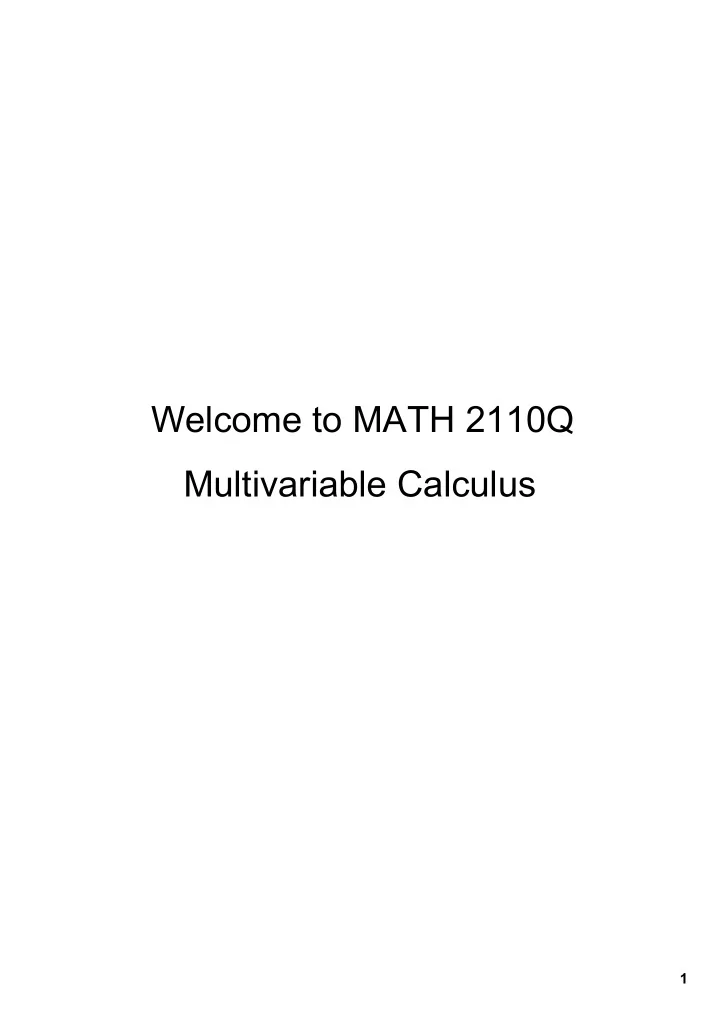

Welcome to MATH 2110Q Multivariable Calculus 1
Our goal is to extend calculus tools to account for multiple dimensions. For example, the NavierStokes equations for an incompressible fluid with 3D in space + 1D in time are: You should be able to "read" these equations at the end of the course. 2
Let us stop for a bit and talk about the syllabus and other details of the course. 3
3D Coordinates 4
We can look at xy, yz, and xz planes in 3D. 5
Recall the four quadrants in 2D: In 3D there are eight "octants". You only need to know the "first octant" by number: 6
Other octants: 7
Projections: this concept can be generalized in many ways far outside the scope of this course. We will discuss "point" and "vector" projections. Projection of P=(a,b,c) onto the xy plane is (a,b,0): 8
Projection of P onto Projection of P onto xz plane is (a,0,c) yz plane is (0,b,c) 9
SURFACES. 2D lines become surfaces in 3D. There is no restriction on z in 3D for the relationship y=x, so ALL zvalues are included: 10
Another common example would be y=1. In 3D, the surface y=1 is a plane parallel to the xz plane but intersecting the yaxis at y=1; 11
A more complicated example is a CYLINDER. 12
Distance between points. 13
14
Note Q is the projection of P onto the xy plane here. The distance is just the size of the zcoordinate of P. 15
One useful idea is the set of all points that are EQUIDISTANT from a central point. 16
17
18
We can also envision things like spherical VOLUMES; 19
VECTORS. These are defined by precisely two characteristics: (1) length and (2) magnitude. 20
A vector can be VISUALIZED with the tail at any desired point; it is still the same vector. 21
Vector addition. 22
Multiplication by a scalar. 23
Here are the algebraic rules; things are simply done "componentwise". Addition/subtraction: Scalar multiplication: 24
25
Magnitude of a vector. 26
Practice #1 Which of the following points is closest to the origin? 27
Practice #2 Find the distance from P=(5, 7, 4) to the yz plane. 28
Practice #3. Find an equation for a sphere with center (0,1,2) and radius 7. 29
Practice #4. Find the center and radius of the sphere 30
Practice #5. 31
Recommend
More recommend